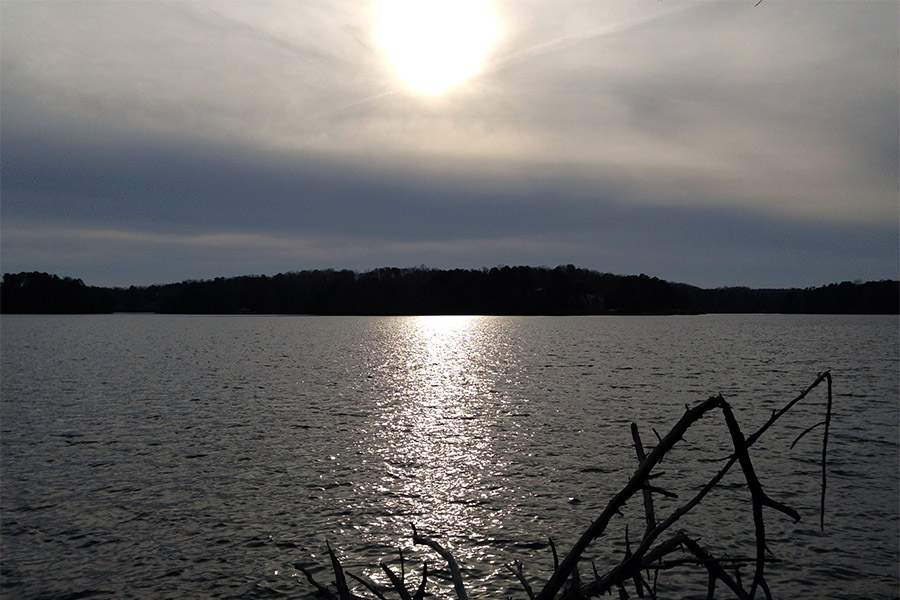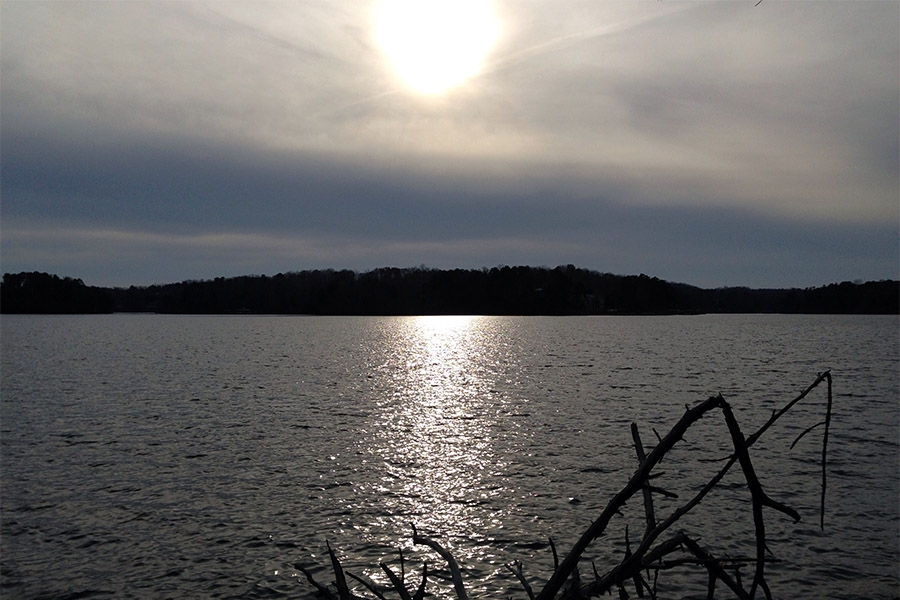 School of Civil and Environmental Engineering researchers have found that bacteria present in only small numbers in freshwater systems still play an important role in maintaining the health of the ecosystem. These so-called “rare” bacterial species contain key genes that help the broader microbial community respond to environmental changes such as pollution or oil spills. The team used water from Lake Lanier northeast of Atlanta to test how microbial communities respond to common organic compounds. (Photo Courtesy: PBT1981 via Wikimedia Commons.) |
Even bacteria found in small numbers in freshwater communities play an essential role in maintaining the ecosystem and responding to environmental changes, according to new work from researchers in the School of Civil and Environmental Engineering.
This “rare biosphere,” as they called it, carries important genes for breaking down organic pollutants, which can help the entire microbial community withstand environmental changes. Their study appeared March 3 in the journal Applied and Environmental Microbiology.
“The work aims to provide a fundamental understanding of how biodiversity contributes to ecosystem functioning,” said Kostas Konstantinidis, a co-author and Carlton S. Wilder Associate Professor in the School. He told the American Society for Microbiology that understanding the role of rare bacteria will help scientists predict how microbial communities will respond to disruptions in their environment like oil spills, pesticide runoff, and climate change.
“Rare” bacterial species each make up just a fraction of a percent of microbes in a freshwater environment like a lake. But together, all of these species can add up to a fifth of the total microbial community.
“The value of this astonishing biodiversity for ecosystem functioning remains poorly understood,” the authors wrote, “primarily due to the fact that microbial community analysis frequently focuses on abundant organisms… . We showed that [the rare biosphere] and genes commonly contribute to microbial community response to organic pollutants.”
Konstantinidis and his colleagues used water from Lake Lanier northeast of Atlanta for the study, introducing three common organic chemicals not typically found in the lake: a widely used herbicide, a precursor of several fungicides that’s also a decomposition product of pesticides, and caffeine.
“We chose these compounds because their biodegradation pathways and the underlying genes are known, which facilitated tracking which microbial populations encoded the proteins for the biodegradation of these organic compounds,” Konstantinidis told the microbiology society.
“The results allowed us to rigorously test the hypothesis that low-abundance species, as opposed to common species, provided the metabolic diversity that enabled the community to respond to the added compounds and the changing conditions.”

